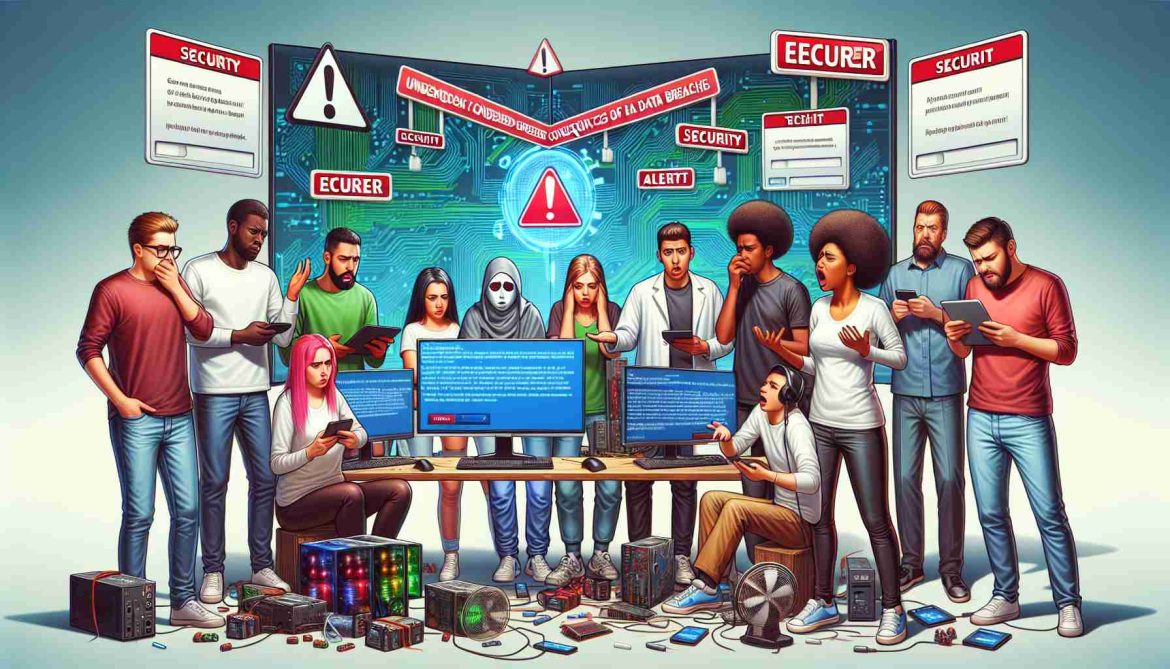A shocking incident has recently come to light in the gaming world, highlighting the devastating consequences of data breaches. While leaks of sensitive information are unfortunately not uncommon, the latest breach involving a major gaming company has sent ripples of concern throughout the industry.
Following a security breach at a leading game development studio, a plethora of confidential Pokemon-related details have been exposed to the public. This breach, disclosed by the studio itself in a formal announcement, revealed that unauthorized access had been gained to their servers in recent months.
Previous instances of similar “gigaleaks” have occurred in the past, but the magnitude of this breach is unparalleled. Beta materials, source codes, and even personal data of employees have made their way online, raising serious ethical and legal concerns.
Amidst the chaos, rumors emerged that a playable version of an upcoming game, “Pokémon Legends: Z-A,” had fallen into the hands of the hackers. Despite the temptation for eager fans to seek out this leaked content, the ramifications of doing so are severe and unwarranted.
Speculations abound regarding the motives behind the leak, with suggestions of potential profit driving such malicious actions. The unethical exposure of developers’ hard work poses a significant threat not only to the affected company but to the integrity of the gaming community as a whole.
As the industry grapples with the fallout of this breach, one can only hope that the incident does not jeopardize the future release of anticipated titles. The repercussions of such data breaches serve as a stark reminder of the importance of safeguarding proprietary information in an increasingly interconnected digital age.
Uncovering New Realities: The Hidden Fallout of Data Breaches in the Gaming Sphere
In the wake of the recent data breach that rocked the gaming industry, there are critical questions that surface concerning the impact and repercussions of such incidents.
Key Questions:
1. How do data breaches in the gaming industry affect player trust and loyalty towards companies?
2. What measures can developers and publishers take to prevent future breaches and protect sensitive information?
3. What legal consequences do companies face when exposed to data breaches involving leaked intellectual property and personal data?
4. How do data breaches in the gaming industry influence the design and development of future games?
5. What role does cybersecurity play in mitigating data breach risks for gaming companies?
Answering Important Queries:
1. Data breaches erode player trust and loyalty as they raise concerns about the security and privacy of personal information. Players may hesitate to engage with companies that have a history of breaches, impacting revenue and brand reputation.
2. Developers and publishers can enhance cybersecurity measures by implementing encryption protocols, conducting regular security audits, and educating employees about data security best practices.
3. Companies may face legal repercussions in the form of fines, lawsuits, and damage to intellectual property rights when personal data or proprietary information is exposed in data breaches.
4. Data breaches can influence game design by necessitating increased emphasis on security features, potentially delaying game releases to ensure robust protection against cyber threats.
5. Cybersecurity plays a crucial role in safeguarding gaming companies from data breaches, underscoring the need for continuous monitoring, threat intelligence, and incident response readiness.
Challenges and Controversies:
One of the key challenges associated with data breaches in the gaming industry is the difficulty of tracing and recovering leaked information once it is made public. Controversies often arise around the motivations behind such breaches, with debates on the ethics of leaking proprietary game content for personal gain.
Advantages and Disadvantages:
An advantage of addressing data breaches proactively is the opportunity to enhance overall security posture, build consumer trust, and demonstrate commitment to data protection compliance. However, a disadvantage lies in the potential financial and reputational damage that companies face in the aftermath of a breach, impacting long-term sustainability and growth.
For further insights on cybersecurity best practices in the gaming industry, visit Eurogamer. This reputable source offers valuable perspectives on the evolving landscape of data protection and cybersecurity in gaming.

